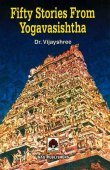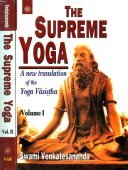Vilasa, Vilāsa, Vilapa: 33 definitions
Introduction:
Vilasa means something in Buddhism, Pali, Hinduism, Sanskrit, Jainism, Prakrit, the history of ancient India, Marathi, Hindi. If you want to know the exact meaning, history, etymology or English translation of this term then check out the descriptions on this page. Add your comment or reference to a book if you want to contribute to this summary article.
Vilasa has 32 English definitions available.
Languages of India and abroad
Sanskrit dictionary
[Deutsch Wörterbuch]
Source: Cologne Digital Sanskrit Dictionaries: Böhtlingk and Roth Grosses Petersburger WörterbuchVilāsa (विलास):—(von 1. las mit vi)
1) m. am Ende eines adj. comp. f. ā . a) das Erscheinen, zum-Vorschein-Kommen: suratarasa [Ṛtusaṃhāra 3, 24.] militaśilīmukhapāṭalipaṭalakṛtasmaratūṇa [Gītagovinda 1, 30.] — b) heiteres Spiel, Scherz, lustiges Treiben, Amüsement; Treiben überh.; = līlā [Amarakoṣa 3, 4, 26, 201.] [Hemacandra’s Anekārthasaṃgraha 3, 756.] [Medinīkoṣa s. 38.] tena ca mahatā vilāsenāsmābhirvindhyācale sthātavyam [Hitopadeśa 114, 18.] vyaya [98, 17, v. l.] vilāsāya zum Vergnügen [Oxforder Handschriften 153,a, No. 328, Z. 6.] [morgenländischen Gesellschaft 14,574,24. fg. 576,5.] [Spr. (II) 1039. 1948. (I) 2657.] [Kathāsaritsāgara 75,72.] [Bhāgavatapurāṇa.3,25,36.] siṃhavilāsavikrama [Mahābhārata 4, 231.] savilāsānmadālasān . mayūrān [3, 11584.] ambhojinīvananivāsavilāso haṃsasya [Spr. (II) 544.] vidheḥ [Kathāsaritsāgara 26, 18. 73, 354.] vedhasaḥ [72, 14.] tāruṇyasya [Sāhityadarpana 52, 12.] taruṇayoṣillocanānām [Oxforder Handschriften 120,a,15.] vacasāṃ vilāsāḥ literärische Spielereien [110,a,31.] vāgvilāsa dass. [120,a,13. 167,b,15.] [Spr. (II) 433.] lakṣmīvilāsāḥ [UTTARAR. 113, 16 (154, 3).] [Rājataraṅgiṇī 3, 259.] pheṇavilāsaprojjvalahāsā fröhliches Hinundherwogen [Chandomañjarī 119.] savilāsam adv. [Rājataraṅgiṇī 8, 807.] [Spr. 4139.] — c) gefallsüchtiges Gebaren eines Weibes, verliebte Gebärden u.s.w. [Amarakoṣa 1, 1, 7, 31.] [Hemacandra’s Abhidhānacintāmaṇi 507.] [Hemacandra’s Anekārthasaṃgraha] [Medinīkoṣa] (hāva st. hāra zu lesen). [Halāyudha 1, 89.] [Sāhityadarpana 125.] definirt [137.] [BHARATA] beim Schol. zu [NALOD. 2, 55.] [DAŚAR. 2, 35.] [JAGADDHARA] bei [HALL] in der Einl. zu [DAŚAR. S. 20.] - [Harivaṃśa 8760.] [Kumārasaṃbhava 3, 5. 5, 13.] [Śākuntala 35.] [Spr. (II) 410. 1123. (I) 1610. 1547. 2673. 3318. 5149.] [Varāhamihira’s Bṛhajjātaka S. 78, 13. 104, 53. 63.] [Gītagovinda 1, 3.] [Chandomañjarī 35.] [Kathāsaritsāgara 24, 86. 49, 48. 52, 306.] [Rājataraṅgiṇī 5, 360. 365.] [Prabodhacandrodaja 40, 13. 101, 12.] [Bhāgavatapurāṇa 1, 9, 40. 5, 17, 13. 24, 16.] [Mārkāṇḍeyapurāṇa 106, 60] (kurvantyo zu lesen). [Dhūrtasamāgama 73, 16.] [SARVADARŚANAS. 78, 12.] gefallsüchtiges Gebaren überh.: savilāsāṅgadarśana [Sāhityadarpana 181.] savilāsahāsa [Varāhamihira’s Bṛhajjātaka 4, 2.] [Śiśupālavadha 9, 26.] [Bhāgavatapurāṇa 9, 24, 64] (suvilāsa ed. Bomb.). — d) Lebhaftigkeit, eine der acht Vorzüge des Mannes, [DAŚAR. 2, 9. fg.] [Sāhityadarpana 89. 91. 277.] Hierher könnte gezogen werdon: yadi suptasya viśrāntavilāsāpīyamīdṛśī . rūpaśobhāsya tatkīdṛkprabuddhasya bhavetsakhī .. [Kathāsaritsāgara 40, 175.] — e) erwachter Geschlechtstrieb, Geilheit [Bharata] [NĀṬYAŚ. 19, 75.] ratyarthehā vilāsaḥ syāt [DAŚAR. 1, 30. 29.] [Sāhityadarpana 352.] — f) Anmuth, Liebreiz: padanyāsa [Bhāgavatapurāṇa 3, 5, 44. 5, 2, 5. 18, 16.] padapaṅkajapalāśa [4, 22, 39.] — g) Nomen proprium eines Mannes (v. l. karpūra) [Hitopadeśa 81, 11, v. l.] —
2) n. ein best. Metrum [Weber’s Indische Studien 8, 357.] — Vgl. anūpa, āryā, kalā, kāśī, jñāna, durgā, pratibhā, bhagavadbhakti, bhāminī, bhrū (auch [Bhāgavatapurāṇa 8, 8, 46.] sabhrūvilāsam [MĀLATĪM. 15, 6]), mokṣalakṣmī, yati, rāghava, rāma, vāṇī, vijeya (vijñeya?), viveka, śaṃkaraceto .
--- OR ---
Vilāsa (विलास):—
1) c) [?Z. 6 Spr. 5149] gehört zu b); vgl. [2te Aufl. 6790.]
Sanskrit, also spelled संस्कृतम् (saṃskṛtam), is an ancient language of India commonly seen as the grandmother of the Indo-European language family (even English!). Closely allied with Prakrit and Pali, Sanskrit is more exhaustive in both grammar and terms and has the most extensive collection of literature in the world, greatly surpassing its sister-languages Greek and Latin.
See also (Relevant definitions)
Starts with (+39): Vilacanai, Vilasa acarya, Vilasa-ghara, Vilasa-kara, Vilasabana, Vilasabhavana, Vilasabhitti, Vilasacapa, Vilasacchirsha, Vilasaceshtita, Vilasacheshtita, Vilasadara, Vilasadhanvan, Vilasadola, Vilasagara, Vilasagriha, Vilasahetu, Vilasaka, Vilasakanana, Vilasakodanda.
Ends with (+193): Abhruvilasa, Adhikaranayuktivilasa, Agamatattvavilasa, Agnivilasa, Amaravilasa, Anandavilasa, Anangabrahmavidyavilasa, Anupasamgitavilasa, Anupavilasa, Arjunavilasa, Aryavilasa, Astavilasa, Asuvilasa, Atharvashiraupanishadvilasa, Atmavidyavilasa, Atmavilasa, Avilasa, Bhagavadbhaktivilasa, Bhaktavilasa, Bhaktivilasa.
Full-text (+395): Vilasakanana, Savilasa, Vilasamandira, Vilasin, Savilasam, Vilasavati, Vilasaka, Vilasacapa, Vilasaveshman, Vilasasvamin, Vilasabhavana, Vilasadhanvan, Vilasabana, Vilasagriha, Vilasavat, Vilas, Vilasasadman, Vilasadola, Vilasashayya, Vilasapura.
Relevant text
Search found 57 books and stories containing Vilasa, Vi-lasa, Vi-lāsa, Vilapa, Viḷāpa, Vilāsa, Viḷasa, Viḷāsa; (plurals include: Vilasas, lasas, lāsas, Vilapas, Viḷāpas, Vilāsas, Viḷasas, Viḷāsas). You can also click to the full overview containing English textual excerpts. Below are direct links for the most relevant articles:
Bhakti-rasamrta-sindhu (by Śrīla Rūpa Gosvāmī)
Verse 2.1.255 < [Part 1 - Ecstatic Excitants (vibhāva)]
Verse 4.8.58 < [Part 8 - Compatible & Incompatible Mellows (maitrī-vaira-sthiti)]
Verse 2.5.37 < [Part 5 - Permanent Ecstatic Mood (sthāyī-bhāva)]
Sahitya-kaumudi by Baladeva Vidyabhushana (by Gaurapada Dāsa)
Text 6.5 < [Chapter 6 - Third-rate Poetry and Super-excellent Poetry]
Text 10.102 < [Chapter 10 - Ornaments of Meaning]
Text 6.3 < [Chapter 6 - Third-rate Poetry and Super-excellent Poetry]
Mahabharata (English) (by Kisari Mohan Ganguli)
Stri-vilapa-parva < [Book 11 - Stri Parva]
Sanskrit sources of Kerala history (by Suma Parappattoli)
18. Other Campus bearing on Kerala history < [Chapter 5 - Sanskrit Dramas and Campus bearing on Kerala History]
7. Arthavimarsini by Vaikkathu Pachu Muttat < [Chapter 6 - Miscellaneous Sanskrit works bearing on Kerala history]
4. The Sivavilasa of Damodara Chakyar < [Chapter 3 - Historical Details from Mahakavyas]
Yoga Vasistha [English], Volume 1-4 (by Vihari-Lala Mitra)
Chapter LXV - Story of bhasa and vilasa < [Book V - Upasama khanda (upashama khanda)]
Chapter LXVI - The transitoriness of life and evanescence of world by things < [Book V - Upasama khanda (upashama khanda)]
Chapter IX - On the supreme cause of all (parama karana) < [Book III - Utpatti khanda (utpatti khanda)]
Shri Gaudiya Kanthahara (by Srila Bhaktisiddhanta Sarasvati)
Related products


